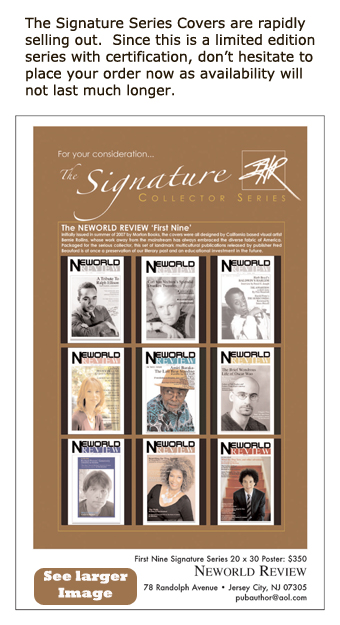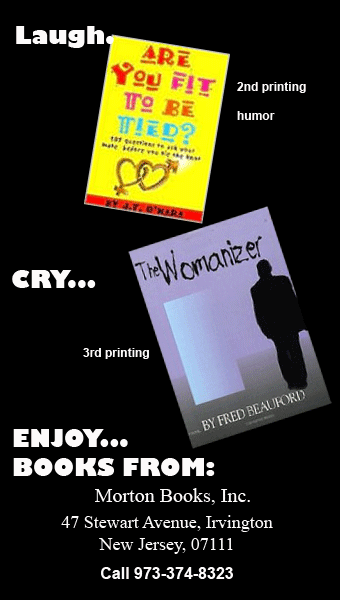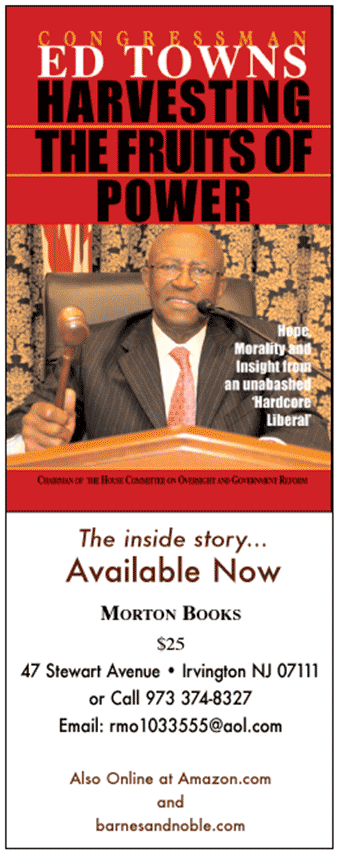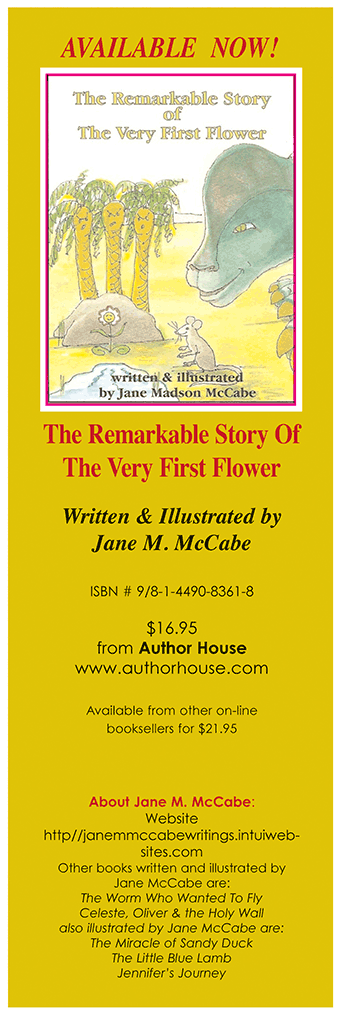PROFILE
Call Him Ishmael!
A profile by Herb Boyd
As a matter of full disclosure, let me say from the jump that any objectivity I might have about Ishmael Reed was wiped out years ago. In 1995, Robert Allen and I received the American Book Award for our anthology, Brotherman: The Odyssey of Black Men in America. That award is given by the Before Columbus Foundation that jus’ grew from Ishmael’s fertile imagination. Though the decision was rendered by the foundation’s board, I will always believe that Ishmael had more than a passing nod in our winning that award.
I wonder if Ishmael has ever received an award from the foundation, if not I can’t think of any writer—black, white or otherwise—who deserves it more. Of the current crop of prolific black American writers, there is the scholarly Gerald Horne, the intrepid Amiri Baraka, and always busy Molefi Kete Asante, who claims to have written more than 75 books. Ishmael is right up there with these productive wordsmiths, and he, like a Langston Hughes, James Baldwin, Zora Neale Hurston, and James Weldon Johnson of the past, wields a versatility that only Baraka of today can match.
Allen and I cobbled together the creative genius of more than 150 African- American male writers for the anthology, and the piece I selected from Ishmael’s vast literary oeuvre was a fragment from Writin’ Is Fightin’. Sure, I was fascinated by Ishmael’s first nationally recognized collection, 19 Necromancers From Now, and a posse of characters such as Louisiana Red, the Loop Garoo Kid, and such novels as Yellow Back Radio Brokedown and The Free-Lance Pallbearers, but his essays, over the years, have been equally provocative and full of his typical sass and pizzazz.
That excerpt from Writin’ Is Fightin’ epitomized Ishmael’s style and attitude about the literary profession; it also did a wonderful job of providing a bit of autobiography and his first brush with the pen. “In 1953, I was working in a drugstore on William Street in Buffalo, New York,” Ishmael wrote. “As I left one evening to go home, a man pulled up to the curb and told me that he needed somebody to help him delivery newspapers. There were stacks of them in the backseat of his old brown beat-up Packard, which was just a shade darker than he was.
“His name was A.J. Smitherman, editor of The Empire Star Weekly, a Buffalo newspaper” Ishmael continued. ’How would you like to have this job every week?’ he asked after we’d taken copies of the newspaper to all of the newsstands on his route. I had been writing before then, and date my first commissioned work to 1952, when my mother asked me to write a birthday poem for one of her fellow employees at Satler’s Department Store on Fillmore.”
Since those formative years, Ishmael has compiled an enviable career of letters, and we should note that he has excelled in practically every literary form, most rewardingly I believe in his novels, though here lately he’s centered his focus on nonfiction. The evidence of that production stares at me each morning—Mixing It Up—Taking on the Media Bullies and Other Reflections and Barack Obama and Jim Crow Media—The Return of the Nigger Breakers—beckoning their own reviews, their own opportunity to convince me once again of Ishmael’s brilliance, and those unfortunate enough to be his most recent targets, those about to be skewered by his piercing putdowns and wit.
One ongoing, almost inevitable preoccupation for Ishmael is the role of black men in literature and the associated issue of misogyny. I hadn’t talked to Ishmael since he was last in New York for a reading at Quincy and Margaret Troupe’s salon in Harlem. He was in fine fettle that evening and, unlike his appearance prior to this, the audience didn’t get a chance to hear his bebop piano filigree. Those of abiding interest can pick up his CD with his companion Carla Blank on violin. David Murray appears on tenor saxophone.
Anyway, back to misogyny and the imperiled black male writers. When asked about the status of this furious debate he has had with feminists and womanist advocates, Ishmael has never been reticent. “Singling out black men in the United States and Africa to take the blame for world misogyny may not be the mother of all hypocrisies, but maybe the cousin,” he wrote in an email. “This theme has made hundreds of millions of dollars for white men in publishing, film, theater, television and the newspaper industry, and some feminists and womanists have behaved as unwitting servants for this enterprise. Not only has this been a huge money maker, but it has muted the strongest American literature of dissent from Walker’s Appeal (1829) to the writings of Black Panthers, Bobby Seale and Huey Newton. No longer was racism the target of black literature but black men. Men with little power to influence the policies that damage women became the oppressors.”
A brutal upshot of this debate with feminists was a charge from Gloria Steinem’s Ms. Magazine that Ishmael was the worst misogynist in the United States. “I bore the brunt of the misogyny charge,” he said, and in his characteristic fighting mode lashed back at his accusers. “My complaint about this accusation and the hint of a law suit against the white men who ran Ms., at the time, Lang Communications, led to the resignation of Robin Morgan, who was editor at Ms. when the article was published.”
“Most of the charges against me as a misogynist originate in publications that are owned by white men who are silent about how women are treated in their ethnic group,” Ishmael asserted.
“A hit job on my new novel, Juice! was done by a critic named Paul Devlin. He objected to my lead character, Paul Blessings, being homophobic and misogynist which is a rule that’s not applied to male novelists like Phillip Roth and Saul Bellow, men who share his background. They want our male characters to sound like Mr. Rogers, or Kermit the Frog. The purpose of this review, which was syndicated, was to drive me out of business. But unlike Richard Wright and Chester Himes, who were silenced when they went too far, I can publish my own books, produce my own CDs and produce my own movies, a lesson I learned when affiliated with the publications Umbra and The East Village Other, back in the day. This guy Devlin, who works for Skip Gate’s The Root, where John McWhorter, a proxy for the far right works, also said that with Juice! I had gone ‘too far,’ which was how slave masters referred to runaway blacks.”
Metaphors about slavery and the some of the denizens of the plantation proliferate in Ishmael’s literature, and even in the titles such as Flight to Canada and Shovetide in Old New Orleans. That he has been able to restrain his anger and not resort to stereotypical lacerations of black feminists is commendable, though they are not let off the hook. “Now a few black feminists have attacked me as a misogynist,” he lamented, and perhaps none more adamant than the heat he got after his dismissal of the film Precious. “But I can’t take them seriously because of where their pieces appeared and their contradictions. One hit appeared in The New Republic, which is published by Marty Peretz, who said that black women were “culturally deficient.”
Margo Jefferson, for many years a mainstay at the New York Times, is among those who have taken exception to Ishmael’s opinions about gender. “She was so agitated by what she calls my misogyny that she came to a book party I threw for the late Calvin Hernton and was so upset I thought we were going to have to call the police. At a forum held at NYU she challenged me to a fist fight. Yet she wrote that she has erotic fantasies about John Wayne. How can I take someone like that seriously?”
Obviously, we could have devoted this entire profile to his discussion on misogyny but of equal importance to readers and writers is Ishmael’s feelings about black male literature. “It has been badmouthed out of the market,” he began. “When the great John Wideman has to go to a vanity press to get published, it means all of us are in trouble. But kindle, nook and other devices will change that because black men and women who are not into the ‘black boogeyman’ racket will have access to world markets. Black literature has to go international.”
“For example,” he explained. “No American publisher would publish my Barack Obama and The Jim Crow Media, The Return of the Nigger Breakers. In Canada, where it was published, it’s going into a second printing. Hundreds of Africans, Caribbean people, and Afro Americans expats turned out to my book signings in Canada. American critics were too narrowly Eurocentric to understand my Japanese By Spring, but Japanese critics praised it and I got big turnouts when I toured Japan. I was informed on July 16, that interest in Japanese By Spring in China has gotten my work declared a national project in that country and there’s interest in my coming there.”
This Asian breakthrough has given Ishmael further incentive to publish under Ishmael Reed Publishing Company whose editorial director is Carla Blank, their latest tome, New and Selected Yuri by Tokyo writer Yuri Kageyama. “Besides the work of Nigerian women we’ve published, we’ve added some more American black women to our catalogue including Alison Mills, Kathryn Takara, Karla Brundrige, Neli Moody, and Jerri Lange and the famed Haitian poet, Boadiba. So my advice to younger writers is to go global. As long as they confine themselves to an American audience they will continue to receive blueprints and ultimatums from special interest groups both black and white,” he advised. Then, as if to tie the above two themes of misogyny and black male literature together, Ishmael cited one of his colleagues, author Cecil Brown. “In an article he published in Counterpunch he said that the charge of black male sexism has been used to undermine literature of black male writers.”
Of course, a number of other factors can be added to this equation of erasure.
When you begin a conversation with Ishmael—and I would ask you to check out Conversations with Ishmael Reed, edited by Bruce Dick and Amritjit Singh for deeper insight on this profound writer—it’s like listening to a majestic concerto, an endless sonata of issues that never fail to resonate with conviction and passion. And since we’re on a musical riff, how’s the arpeggios and burnished chords nowadays?
“I’m still studying Jazz,” he said. “My teacher is the great Jazz pianist, Mary Watkins, who insists that I do my scales and cadences. I’m taking a group into Yoshi’s, the San Francisco Jazz club, August, Oct. and Nov. I just had a reel to reel tape of a recording session led by the late bassist, the great Ortiz Walton which I produced in 1970. He was the first black to perform with The Boston Symphony. His sidemen are bassists James Leary and Bill Summers. It’s a treasure. I plan to bring out a limited memorial edition.”
And what about your talented daughter? “Tennessee and I are running a series I call Midnight Writing During The Day, an answer to Midnight Basketball,” he replied. “Timothy, my oldest daughter has completed her second novel. My other daughter, Tennessee and I are running a summer poetry workshops for fifteen black kids. Run a workshop like this and you see the damage that Eurocentrics have done to black children. These are very bright kids, but they have never heard of Richard Wright and more shocking, Ntozake Shange. Black and Hispanic kids are failing in their reading scores because they don’t see themselves represented in the cerebral arts. Books by black authors don’t get the coverage accorded white authors because the media see sales in presenting blacks as ridiculous or dangerous.”
“My novel Juice!, illustrated with my drawings,” he continued, “has been ignored by the mainstream press because, as my agent said when I began this book, most people believe that O.J. is guilty. That’s because he was judged by the media which, as in the Casey Anthony case, keeps judging people as guilty even when a jury has acquitted them.”
Despite all his complaints about the world of literature, Ishmael, a winner of the John D. and Catherine T. MacArthur Foundation’s "genius grant," confesses that he’s doing all right. “I’m doing much better than most black, Hispanic, Native American, Asian American and white writers who are interested in producing and promoting serious literature,” he contends. “I know this. Now, the bloggers have sustained Juice! and the most intelligent reviews are coming from that element. Cyberspace will become the rival to the mainstream media that has caused so much damage in the country and can possibly sustain a literature that is despised by some. As a result, the media’s coverage of black men is confined to crime and sports; how many black kids know that the head of
NASA or the heads of planetariums in both Philadelphia and New York are black men? How many black kids know that the formula for sending a space shuttle into space and returning it to earth was created by a black woman?
“The representation of blacks, especially black men, that appears in the media daily, amounts to psychological assault. Goebbels would be jealous. Except for a few, black authors aren’t part of public education’s curriculum. It’s time to supplement public education, which has failed not only black and Hispanic kids but white kids as well, with off-campus programs like Midnight Writing. We especially need black and Hispanic male writers to start these programs. They’ve been kept out of classrooms because of their lack of credentials.
“We have no money. The Black Repertory Theater lent us their green room. If some black intellectuals would spend as much energy petitioning for space in their cities for the purpose of setting up Midnight Writing programs as they do making a fetish of the 60s, dozens of summer workshops would be established by now. I challenge Henry Louis Gates who has been appointed Czar of black culture by millionaires, and at least one billionaire, to support Midnight Writing During the Day programs across the country, but he won’t.”
Anybody out there want to take on the mighty Ish?




